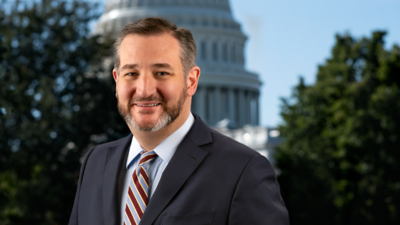A photo of a welfare recipient’s nearly bare refrigerator, containing a few sodas and other sugary drinks, taken by WTTW-TV reporter Amanda Vinicky and posted on Twitter is emblematic of the upcoming debate in Congress over the nation’s Supplemental Nutrition Assistance Program (SNAP), poverty experts say.
Angela Rachidi, research fellow in Poverty Studies at the American Enterprise Institute, told Chicago City Wire that proposed reforms to SNAP, including restrictions on purchases to healthier options, will be at the center of the debate in Congress over the farm bill, the multibillion-dollar agricultural and food policy vehicle that comes up for renewal in Congress every five years.
SNAP, formerly the food stamp program, and other food assistance programs historically account for approximately 70 percent of the U.S. Department of Agriculture’s budget; in fiscal 2016, SNAP cost slightly more than $70 billion.

Amanda Vinicky
“Right now the only things really not allowed are alcohol, tobacco products and hot meals, meaning eating out at restaurants,” Rachidi said. “Over the years, some states have tried to put further limits on the kinds of foods allowed to be purchased, but Washington has never granted a waiver. Congress has to make the changes.”
A farm bill is scheduled to be introduced in a few months by U.S. Rep. Mike Conaway (R-Texas), chair of the House Agriculture Committee. Conaway recently told reporters in Texas that the legislation will contain proposed reforms to SNAP, but he provided few details other than saying it would contain some training and work requirements to take advantage of the economy under President Donald Trump.
Rachidi said that the requirement of healthier food choices will almost certainly be part of the debate as well, but that the lobby against change is a powerful one.
“The change cuts across party lines and it’s been pushed by public health groups for a while,” she said. “But the food banks, the Food Research & Action Center, and the grocers form a powerful lobbying coalition. The argument they will use will be why stigmatize the poor further by taking away things others aren’t enrolled in SNAP can buy.”




 Alerts Sign-up
Alerts Sign-up